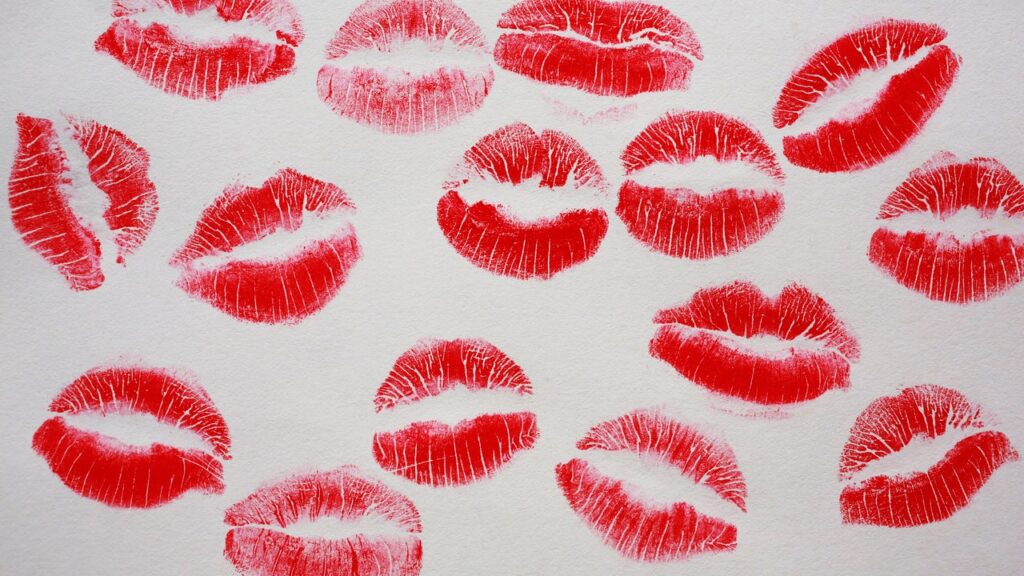“If you think about it, just kissing in a relationship totally changes the dynamic of that moment,” Nina Westbrook told me over Zoom from London. “It helps you increase the positive feelings you have towards your partner, instead of just going through the usual routine.” Westbrook, a licensed marriage therapist, founder of wellness platform Bene by Nina, and host of relationship podcast Do Tell, is used to talking about what life is really like with NBA star and Vogue fashion icon husband Russell Westbrook. (See some cute photos of the couple below.) Ahead of back-to-back kissing celebrations — National Kissing Day today and International Kissing Day on July 6 — we're chatting about a video circulating on social feeds in which Dr. John and Julie Gottman recommend a six-second kiss, which “releases oxytocin” and may “create a sense of psychological safety and connection and bonding.”
Westbrook agrees that intimacy in your everyday life is good for your health. Increasing oxytocin-producing activities can naturally boost happiness and foster intimacy in any stage of your relationship. And it can also help relieve stress. “Research shows that kissing helps lower levels of cortisol, the stress hormone,” Westbrook explains. “Having chronic cortisol can lead to anxiety, which a lot of people experience. Kissing helps to reduce that hormone and lower stress levels.” Whether you're in a long-time couple or a new relationship, there's good reason to think that the way you approach intimacy in your everyday life is good for your mood and mental health and wellness.
Westbrook says it's a helpful reminder in her own life. “It's funny, because my way of showing affection isn't through physical touch, so I've had to incorporate that into my relationships,” she says. “I don't need physical touch, but I've grown to love it over time, especially since having kids. There's no way to avoid them being attached to me all day every day, but when it comes to my relationship, I'm very intentional about how we spend time together.” A weekly date night also fosters essential bonding. “My husband and I love going to the movies,” Westbrook says. “I realized a long time ago that if we don't make time to really connect and talk about our lives outside of our busy schedules and our kids, we'll lose track of each other.” Now, she says, “kissing is definitely part of our ritual.”
Our cultural response to PDA is constantly changing, so don't be discouraged. Kissing is outdated, says Westbrook in “The Habit of Kissing,” an 1888 article that is a scathing critique of kissing more than a century ago. The article claims that “in this society, women are kissed only twice a season,” and that “married women are more into kissing than single women.” I tell her how my husband and I were struck by the sight of an older couple kissing romantically at the Louvre, and how strong (and sometimes shameful) the American response is. “Some people like PDA, some people don't, but what really matters is how it makes you feel,” she wisely says. “Live a little,” she suggests. And living in the present in a “little kissing bubble” can help you break out of a mental stress loop. “If you imagine kissing your husband, do a long, six-second kiss, and it completely changes the trajectory of what you're thinking about in that moment,” Westbrook says. “You don't care about anything else, and you're instantly in intimacy mode.” Reduced stress is good for the heart, she points out, and all these positive interactions and hormone releases could help us live longer, happier lives.
“We often think of mental health as a mental illness, instead of as something that pertains to everyday life and lifestyle,” Westbrook says. “Just taking small steps and doing a lot of really small things, like kissing your partner for six seconds every time you have the chance, can have a big impact on your mental health.” If you're prioritizing your health, don't forget the staples. “I'm going to practice that six-second kiss more for myself and my own personal life,” Westbrook says. It's good advice for all of us. “I'd love to see a lot more PDA this summer.”



